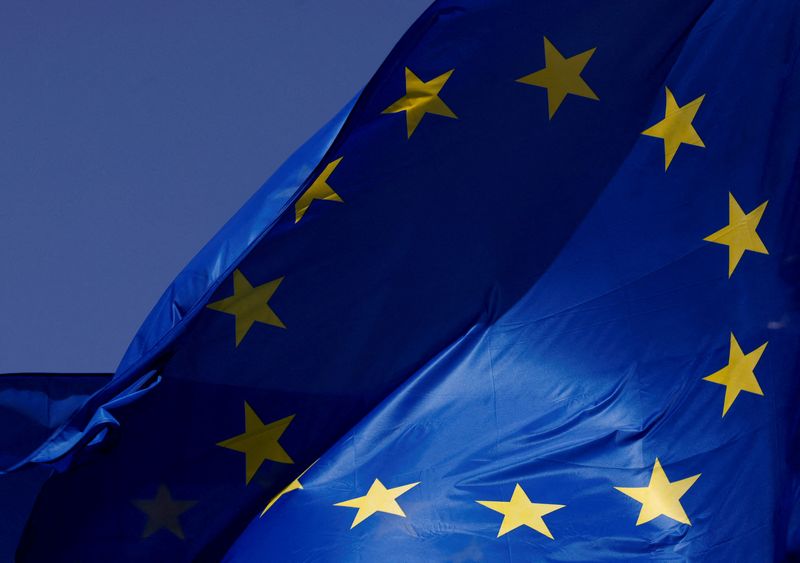By Jan Strupczewski and Andreas Rinke
BRUSSELS/BERLIN (Reuters) -European Union leaders are to back new EU funding for the green tech industry to counterbalance subsidies in the United States and China, draft conclusions of their summit in February showed, but EU officials were quick to play them down as going too far.
In their current form, the draft conclusions for the Feb 9-10 EU leaders' summit, seen by Reuters, would signal that Germany and other northern European countries are ready to drop their earlier objections to the EU jointly raising more money.
But some EU diplomats said that was not the case and the part of the draft which refers to new EU funding to counter the $369 billion of subsidies offered to the green industry by the U.S. Inflation Reduction Act (IRA), was likely to be changed.
European makers of wind turbines, solar panels, batteries and hydrogen are considering whether to invest in the United States instead of in Europe, because of the help offered by the U.S. legislation, much of it subject to local content requirements.
If EU companies were to chose the United States, then Europe would lose jobs, investment and cherished innovation in a sector that is likely to see dynamic growth in the coming years.
To prevent that, the EU wants to loosen its state aid rules to allow faster and greater government support to green sectors.
But since not all 27 EU governments can subsidise to the same extent, many want some common EU funding to equalise chances and keep a level playing field in the union.
"Even access to financial means is instrumental to a fully effective EU policy response," the draft conclusions said, adding that EU leaders wanted the EU executive Commission to propose funding that would use the model of joint borrowing that is passed on to governments as loans.
INVESTMENT SUPPORT
The draft conclusions also showed leaders will expect the EU executive Commission to come up with a plan for a European Sovereignty Fund to support investment, with the involvement of the European Investment Bank.
The leaders will also call for better investment conditions, such as fast-tracking permits for new clean-tech projects and more green-focused public procurement rules, the draft said.
But the conclusions were unlikely to survive in their current form, diplomats said.
"A large number of EU countries feel that the IRA part of the conclusions, as drafted by (European Council President Charles) Michel is entirely premature," one EU diplomat said.
The Commission hasn't presented formal plans, the diplomat said. German Chancellor Olaf Scholz and other leaders are opposed to new EU funding, the diplomat said.
Scholz has made clear he believed there was still a lot of untapped EU money - more than 200 billion euros - from the EU's post-pandemic recovery fund that should be used first before any discussions on new funding start.
German government officials said that it was becoming unlikely that the summit, which is to be partially devoted to an EU response to the U.S. legislation, would produce concrete decisions.
"We need more time," one German official said.
The Commission has been analysing the needs of the EU green industry to present next week a proposal on improving European competitiveness against China and the United States, in preparation for the February discussions.

But the Commission is not ready to present a firm proposal, a second EU diplomat said.
"We don’t blame them, because everybody realises it is very difficult to evaluate the effect of IRA on European economy," the diplomat said, adding that many governments have not finished their own IRA-impact analysis yet.